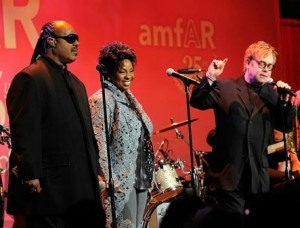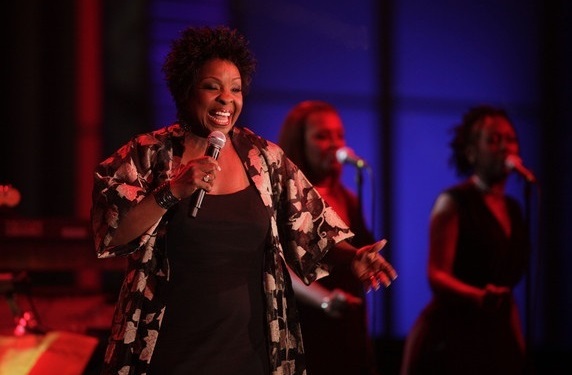We Help Select, Hire and Book Celebrity Motown R&B and 70’s Music Artists for Your Event.
These music artists are currently performing for major corporate incentive events, trade associations, non-profit galas, parties and large convention events.

Stevie Wonder & Elton John at amFAR Event
These artists, on a selective basis, perform their same fully produced public shows for corporate audiences and private clients nationwide.
Celebrity Direct Inc. is your direct source to book and hire Celebrity Motown R&B and 70’s musicians. Our relationships with these celebrities are the basis from which all our company services extend. See more information about The Booking Process for a comprehensive look at what you should know about acquiring the biggest celebrity name for your entertainment dollar.
We always work on your behalf to select, negotiate, book and produce the best celebrity performance for your event. Most importantly, Celebrity Direct Inc. is positioned as your advocate throughout the entire process.
Motown R&B and 70’s Concert Artists, Musicians & Bands
click on name below for more info

Gladys Knight Performs for Starkey Hearing Foundation
The Promoters Resource
For the experienced or first time concert promoter, we help you get the research and ticket sales data for an artist in a specific market so that you can compare and contrast artist selection and make informed buying decisions. We help you select, hire and produce celebrity level music artists and comedians for publicly ticketed advertised events nationwide.
__________
Why Celebrity Direct Inc.
Direct Source for Celebrity Performers We are the industry leader in celebrity talent buying and production for corporate events. We work on your behalf to hire the best possible celebrity for your budget and we are uniquely positioned as your advocate in the booking process so you never overpay.
Corporate & Non-Profit Events and Private Performances We are dedicated to private performances, not publicly ticketed events, and we are the experts in this highly specialized entertainment market.
Complete Turn-Key Production Nationwide Event planners work with us in several ways, either choosing from a menu of our services or asking us to produce a show delivered completely turn-key at your event nationwide.